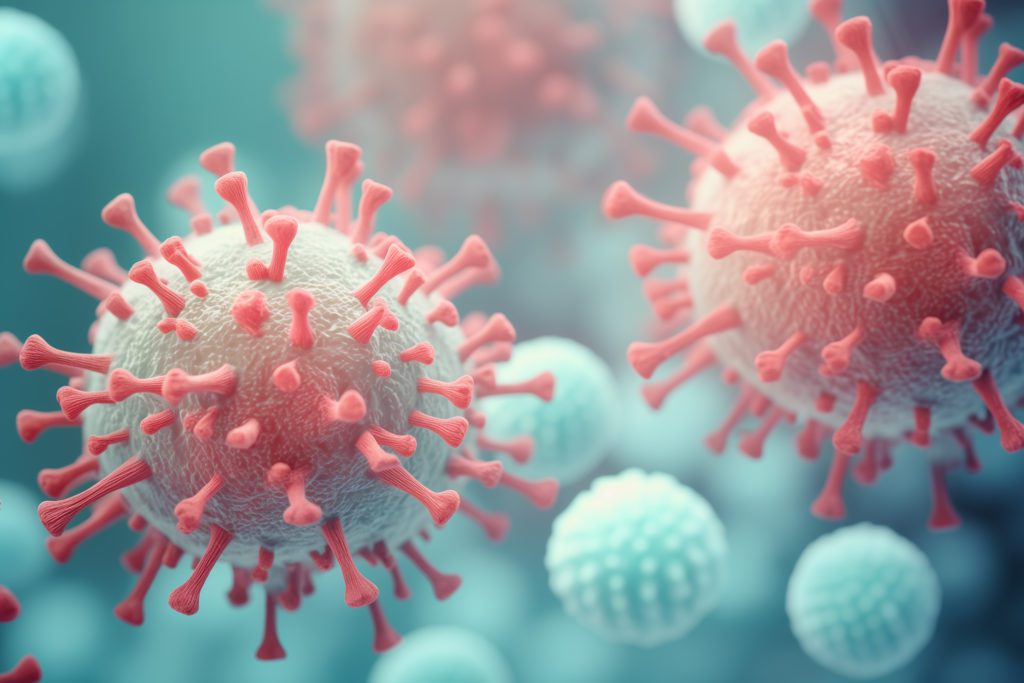
Role of Circadian Rhythms in Sexual Health
Ever wondered if your sleep-wake cycle influenced your sexual health? Read more to learn how the circadian rhythm impacts both male and female health!

Have you ever wondered if your sleep is tied to your sexual health? How often have you had poor sleep and then felt like you didn’t perform how you expected? Well, if this has ever happened to you, there’s a good reason why: your circadian rhythm actually impacts your sexual health in more ways than just one. Your circadian rhythm is not just about ensuring that you get enough sleep but about your ability to perform during intercourse, when you should, and even your ability to conceive.
In this article, we’ll explore all of this and more to give you a clear view of the role of your circadian rhythm in your sexual health. After you read this, you’ll understand all that you need to know about the role of our circadian rhythms in terms of our sexual health and even how you can enhance your overall health. Let’s explore first why our circadian rhythm impacts our hormones and what this means for our bodies.
Circadian Rhythms Impact Your Hormones
You might have known that your circadian rhythm releases hormones, namely sleep hormones, when it comes time to rest, but did you know that it can also release your sex hormones? This is important because as long as you are healthy and your circadian rhythm is as it should be, you should have normal secretion or release of your sex hormones (Source: PubMed).
Your sleep patterns and how well you sleep can actually indicate your sexual health. According to researchers who analyzed sleep deprivation and fertility, sleep disturbances can impair your release of hormones. This includes not only melatonin but also testosterone and other sex hormones. What this means is that if you are not getting adequate sleep and you’re sleep-deprived, you’re going to see a drop in your hormonal balance and even struggles with fertility, which we will explore more in-depth later.
If your body relies on this internal clock, then it also makes sense that with the release of certain sex hormones, you might find an optimal time for intercourse. There are studies that have shown, to some extent, that this is possible!
It Could Indicate Optimal Timing for Intercourse
You may already know that the best time to jump into bed with your spouse is around ovulation, as this is when the female hormones are at their prime and fertility is at its peak. However, circadian rhythms also play an essential role in safeguarding female sexual health.
Humans are similar to many mammals, which is why studies on rats, for instance, can lead to some exciting discoveries in the scientific world. As studied in rats and also true in humans, the circadian rhythm actually can impact fertility, ovulation, and one’s sexual drive (Source: PubMed). So, if you find that when ovulation arrives, you’re feeling more driven to have intercourse, this is no accident. It’s all down to your biology!
According to what is available in current research, there is no one time throughout the day for women that is best for reproduction, as the female hormone system operates on a longer cycle than the male hormone cycle. For men, there is also no one time throughout the day that is best. However, it is clear that there is a specific time throughout the month for intercourse that might yield more pleasant results for both men and women.
Disruptions to the Sleep-Wake Cycle Could Affect Sexual Function
Even despite the fact that there is no research to suggest an optimal time to have sex throughout the day, there are studies that show how disrupting your sleep-wake cycle can actually impact your sexual function. This would make sense, considering all that we have explored thus far. If the circadian rhythm affects your body’s ability to secrete certain hormones, then it would likely also impact your body’s ability to get aroused and feel ready for intercourse.
There have been numerous studies that have shown this, including one published only a few years ago on female sexual dysfunction. As they discovered in their research, poor sleep quality was the primary indicator of worse odds of a female’s ability to perform in the bedroom (Source: Menopause). Because men also have their hormones secreted through the circadian rhythm just like women, the same is also true for them.
One study on men specifically actually showed that sleep challenges for men in their later years especially led to less testosterone secretion and more challenges in the bedroom. So, for both men and women, the sleep-wake cycle can affect your sexual function, including how healthy your hormones are. As you might have already inferred, this is not just an issue for your health but also for your ability to reproduce.
Circadian Rhythms Can Influence Fertility and Reproduction
If you lose sleep and your circadian rhythm is disrupted, you secrete fewer hormones. This can only lead to one result: less reproductive success. This goes for both men and women, too! For women, the disruption of their sexual hormones can actually lead to conditions like PCOS or polycystic ovarian syndrome, which can limit their ability to reproduce, have a regular cycle, and more (Source: Clinical Endocrinology).
For men, it’s also a similar situation, but within their own reproductive system. With less testosterone, you are likely to have challenges in terms of your sexual function, which can lead to less chance of being able to reproduce. It’s an unfortunate situation, but one that has a clear explanation and connection to our circadian rhythms. When you prioritize your sleep and your alignment with your body’s natural sleep-wake cycles, you’ll improve your health, including your sexual health!
Take Charge of Your Sexual Health and Well-Being
If you struggle with fertility and sexual function, you may have an issue with your circadian rhythm. Because of the ability this has to secrete hormones, you could struggle to have children or even feel the desire to have intercourse. Fortunately, now that you know the connection between your circadian rhythm and your sexual health, you can take steps to help improve your overall well-being. How will you protect and enhance your overall health?
FAQ
Is there a relationship between sleep disorders and sexual dysfunction?
Yes, sleep disorders such as insomnia or sleep apnea disrupt circadian rhythms and are strongly linked to sexual dysfunction. Poor sleep affects hormonal regulation, energy levels, and blood flow, all critical for healthy sexual function. Treating the sleep disorder often improves sexual health.
Are there gender differences in how circadian rhythms affect sexual health?
Yes, men's testosterone levels typically follow a daily rhythm, peaking in the morning, while women's reproductive hormones are influenced by monthly cycles. These differences can affect the timing and intensity of sexual desire and response, making hormonal and sleep regulation critical for both sexes.
How does aging affect circadian rhythms and sexual health?
Aging weakens circadian rhythms, often causing sleep disturbances and hormonal shifts. These changes can lead to reduced libido, erectile dysfunction, and slower arousal in both men and women. Maintaining healthy habits can help support hormonal balance and improve sleep and sexual health as we age.
Can mental health disorders affect circadian rhythms and sexual health simultaneously?
Mental health conditions like depression and bipolar disorder can severely disrupt circadian rhythms, altering sleep patterns and mood. These disruptions can also decrease libido and contribute to sexual dysfunction, as hormonal imbalances and reduced energy further affect overall sexual well-being.
How does shift work impact circadian rhythms and sexual health?
Shift work can disrupt natural circadian rhythms due to irregular sleep schedules and exposure to light at unconventional hours, leading to hormonal imbalances. This misalignment often reduces libido, energy levels, and even fertility, as the body struggles to maintain normal physiological rhythms.
Can travel across time zones impact sexual health through circadian disruption?
Crossing time zones causes jet lag, which disrupts circadian rhythms and can lead to hormonal imbalances. This can result in fatigue, reduced libido, and temporary sexual dysfunction. Re-establishing regular sleep and light exposure can help restore both sleep patterns and sexual health.
Are there cultural or lifestyle differences in how circadian rhythms impact sexual health?
Cultural norms and lifestyle habits, such as staying out late, irregular work hours, or dietary practices, can disrupt circadian rhythms. This disruption can result in inconsistent hormone production, leading to reduced sexual desire or performance, depending on individual habits and societal expectations.

Written by
Marie Soukup
Marie Soukup is a seasoned copywriter, editor, and Integrative Nutrition Health Coach with a certificate from the Institute of Integrative Nutrition (IIN). With years of experience working with brands across diverse industries, Marie is passionate about holistic health and crafting compelling content.
Download Pillow
Get help
Press & News
Legal
Connect
X (Twitter)
Company
Copyright © Neybox Digital Ltd.



